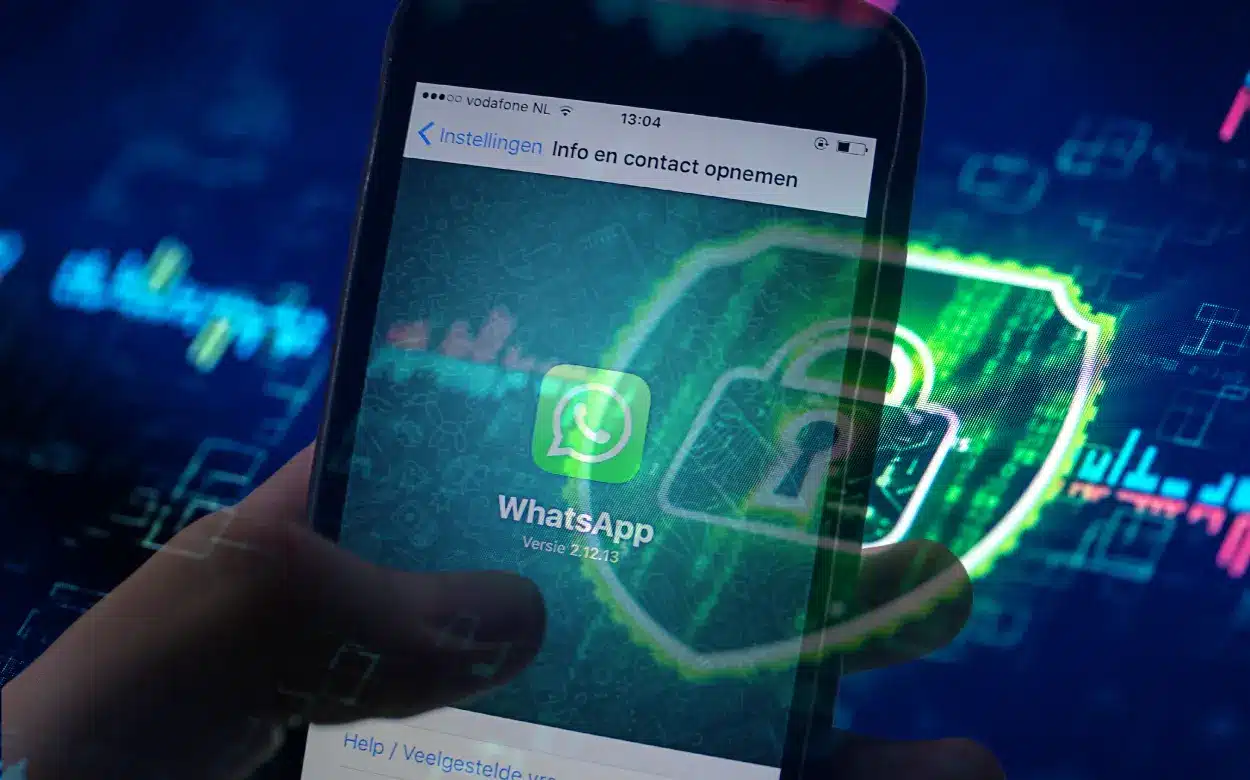How WhatsApp Works 2025 What Really Happens When You Hit Send?
WhatsApp, one of the most widely used messaging applications globally, has transformed the way we communicate with family, friends, and colleagues. With over two billion users worldwide, WhatsApp’s seamless, fast, and secure messaging capabilities make it an essential tool in our daily digital lives. But, have you ever wondered what happens behind the scenes when you hit “send” on a WhatsApp message? From encryption to real-time delivery, the process is far more complex than you might think.
In this article, we will take a deep dive into the future of WhatsApp and explore how this messaging app works, shedding light on its inner workings, security features, and the technology behind the app that ensures your messages are delivered almost instantly. Whether you’re an avid WhatsApp user or someone interested in the intricacies of messaging technology, this article will provide a comprehensive understanding of WhatsApp’s mechanisms.
1. Introduction to WhatsApp
WhatsApp was founded in 2009 by Brian Acton and Jan Koum, two former Yahoo employees. The app quickly became popular due to its simple, reliable, and cost-effective messaging platform, allowing users to send text messages, make voice calls, share multimedia, and more without the need for SMS services. WhatsApp operates over the internet, eliminating traditional texting charges and allowing seamless international communication.
But behind its user-friendly interface, WhatsApp operates on a complex network of technologies that make the experience efficient and secure. This article aims to explain exactly how WhatsApp works, including the technology, encryption, and delivery processes that are involved each time you send a message.
2. How Does WhatsApp Work?
WhatsApp operates by connecting users over the internet. To use WhatsApp, all you need is an internet connection (either Wi-Fi or mobile data), and a mobile phone number. WhatsApp leverages your mobile phone number as a unique identifier and uses it to connect you with your contacts.
Sending a Message
When you open WhatsApp, you select a contact or group to send a message to. Once you type your message and hit “send,” the process of delivering that message begins. Here’s a basic breakdown of the sequence of events:
-
Message Input: You type a message, which could be a text, image, video, or document.
-
Internet Connectivity: The message is sent over the internet via either Wi-Fi or mobile data.
-
Compression: WhatsApp compresses the content of the message to reduce the size before transmission. This ensures faster delivery times and more efficient use of data.
-
Encryption: As the message is prepared to leave your phone, it undergoes encryption, ensuring that it is unreadable during transit.
Message Delivery Mechanism
Once the message is sent, WhatsApp employs a unique message delivery system that includes the following steps:
-
WhatsApp Server Relay: After sending, the message is sent to WhatsApp’s server. This is where it is temporarily stored.
-
Retrieving Message: The recipient’s phone communicates with the server, requesting the message.
-
Decryption: The message is decrypted once received on the recipient’s phone. Only the recipient’s phone can decrypt the message using a secret key.
-
Acknowledgement: WhatsApp then updates the status of the message, which appears as check marks. A single check mark means the message was sent, double check marks indicate it was delivered, and blue check marks signify that the recipient has read the message.
3. The Role of WhatsApp Servers
WhatsApp uses a client-server model where your device communicates with WhatsApp’s servers for the sending and receiving of messages. However, WhatsApp employs the principle of “store-and-forward,” meaning messages are stored temporarily on WhatsApp’s servers before being forwarded to the recipient.
The servers are strategically located across various regions worldwide to reduce latency and improve delivery times. These servers help manage things like message routing, push notifications, and handling the connection between your device and the recipient’s device. However, despite being temporarily stored, WhatsApp ensures that the messages are encrypted, and no one can access their contents while stored on the servers.
4. End-to-End Encryption: The Technology Behind WhatsApp Security
One of the standout features of WhatsApp is its use of end-to-end encryption (E2EE), which ensures that only you and the person you’re communicating with can read the messages you exchange. Even WhatsApp itself cannot access the contents of your messages.
What is End-to-End Encryption?
End-to-end encryption is a security measure that ensures that only the sender and receiver of the message have the decryption keys to read the message. Here’s how it works in WhatsApp:
-
Encryption Keys: When you send a message, it is encrypted on your phone using a public key. This encrypted message is sent over the internet.
-
Decryption on the Recipient’s Device: When the message reaches the recipient’s phone, it is decrypted using a private key that only their phone possesses.
Since the encryption process happens locally on your phone and the decryption on the recipient’s phone, no one in between, including WhatsApp’s servers, can intercept or read the content of the message.
Why is Encryption Important?
Encryption ensures privacy and security. Without it, messages could be intercepted and read by malicious third parties, such as hackers, governments, or even the service provider itself. By using encryption, WhatsApp protects its users from such breaches of privacy.
5. The Future of WhatsApp Messaging
As WhatsApp evolves, it is focusing on improving user experience, privacy, and adding new features to stay competitive in the rapidly changing messaging landscape. Some possible future developments include:
-
Enhanced Group Features: WhatsApp may introduce more features for managing large groups, such as improved admin controls and enhanced organization tools.
-
AI-Driven Features: AI could enhance features like message suggestions, auto-responses, and more intelligent filtering of spam and unwanted messages.
-
Augmented Reality: The use of AR for sending interactive media could revolutionize how users interact within the app.
-
Business Integration: WhatsApp is expanding its WhatsApp Business platform, allowing more businesses to integrate messaging features directly into their customer service workflow.
6. What Happens When You Hit ‘Send’ on WhatsApp?
Now let’s look at the complete process when you hit “send” on WhatsApp:
-
Message Creation: You type your message, attach any multimedia, and press “send.”
-
Encryption: The message is immediately encrypted on your phone, ensuring privacy.
-
Server Relay: The encrypted message is sent to WhatsApp’s server for temporary storage.
-
Message Routing: WhatsApp’s server checks for the recipient’s availability and forwards the message to their phone.
-
Decryption: The recipient’s phone decrypts the message using its private key.
-
Confirmation: The message is marked as delivered and read, with status updates sent back to your phone.
This entire process happens in a matter of seconds, providing a seamless messaging experience.
7. Challenges and Limitations of WhatsApp Messaging
Despite its many advantages, WhatsApp faces some challenges and limitations:
-
Server Outages: Like any online service, WhatsApp is susceptible to server outages, which can temporarily disrupt service.
-
Limited Message History: Since WhatsApp messages are encrypted end-to-end, they are not stored in an accessible way. This makes it difficult to recover older messages unless they are backed up.
-
Spam and Fake Accounts: The app has faced challenges in combatting spam messages and fake accounts, especially in groups.
8. The Evolution of WhatsApp
WhatsApp has grown significantly over the years. It has expanded beyond simple messaging and is now a multi-faceted platform that offers voice and video calls, file sharing, and business communications.
-
WhatsApp for Business: WhatsApp now provides businesses with a platform to interact with customers, answer inquiries, and send updates.
-
Voice and Video Calling: The app allows voice and video calls over the internet, which have become indispensable for personal and professional communication.
WhatsApp’s success is largely due to its seamless, secure, and efficient messaging system. From the moment you hit “send,” there’s a complex process that ensures your message is delivered instantly to your contact. The use of end-to-end encryption, servers, and fast data transmission ensures your privacy and quick communication.
As WhatsApp continues to evolve, expect more features, enhanced security, and innovative capabilities that will keep it at the forefront of the messaging space.
FAQs
Q1: Can I recover deleted WhatsApp messages?
A1: Yes, it is possible to recover deleted WhatsApp messages, but this depends on whether you have a backup set up in advance.
WhatsApp provides two ways to back up your messages: Google Drive (for Android devices) or iCloud (for iPhone). These backups save your message history, media files, and other important data to the cloud at regular intervals (usually daily, weekly, or monthly depending on your settings).
How to recover deleted messages if you have a backup:
-
Reinstall WhatsApp: If you’ve deleted messages or uninstalled the app, reinstall WhatsApp on your phone.
-
Verify your phone number: After installing, open WhatsApp and enter the phone number you used for your account.
-
Restore from Backup: WhatsApp will prompt you to restore your messages from the backup during the installation process. If you have a recent backup, your deleted messages will be recovered.
However, there’s an important caveat: WhatsApp will only restore the messages that were present at the time of the last backup. If a message was deleted after the most recent backup, it will not be recoverable.
What happens if you don’t have a backup?
If you haven’t set up backups, or if you don’t have a backup that includes the deleted messages, there’s no way to recover them. Once deleted, messages that weren’t backed up are gone for good.
Q2: How does WhatsApp ensure my privacy?
A2: WhatsApp ensures your privacy primarily through end-to-end encryption (E2EE). This means that messages sent on WhatsApp are encrypted on your device and can only be decrypted by the intended recipient’s device.
How End-to-End Encryption Works:
-
Message Encryption: When you send a message, it is encrypted on your device with a cryptographic key. This key is unique to your message and can only be decrypted by the recipient’s phone, using a corresponding key.
-
Server Storage: WhatsApp’s servers temporarily store messages, but they remain encrypted and unreadable to anyone, including WhatsApp itself. Once the recipient’s device retrieves the message, it is decrypted locally.
-
Security Protocols: WhatsApp uses the Signal Protocol, which is recognized as one of the most secure encryption protocols available, ensuring that your messages cannot be intercepted or accessed by anyone in transit.
This encryption ensures that:
-
Only You and the Recipient Can Read the Message: Even WhatsApp servers, hackers, or any third parties cannot intercept or decrypt the messages while in transit.
-
No Centralized Data Storage: Messages are not stored on WhatsApp’s servers permanently. Once delivered, they are deleted from the servers.
Additionally, WhatsApp includes various other privacy features like two-step verification, self-destructing messages, and the ability to control who can see your profile information.
Q3: Is WhatsApp secure for businesses?
A3: Yes, WhatsApp is generally secure for business communication, especially with the introduction of WhatsApp Business. The app offers secure communication between businesses and their customers by leveraging the same end-to-end encryption used in personal chats.
Security Features for Businesses:
-
End-to-End Encryption: Just like with personal accounts, all messages between businesses and customers on WhatsApp are encrypted from end to end.
-
Business Profiles: WhatsApp Business allows companies to create verified business profiles. This helps customers identify official accounts and reduces the risk of fraud or scams.
-
Two-Step Verification: WhatsApp Business accounts can set up two-step verification for additional security. This adds an extra layer of protection by requiring a PIN to access the account.
-
WhatsApp Business API: Large businesses can use the WhatsApp Business API for automated responses, customer service, and marketing communications. The API is integrated with secure platforms, ensuring that customer data remains protected.
Best Practices for Businesses to Secure WhatsApp Accounts:
Even though WhatsApp Business is secure, businesses should still follow best practices for securing their accounts:
-
Regularly update the app to the latest version to avoid security vulnerabilities.
-
Monitor for suspicious activity: Look out for any unauthorized login attempts or suspicious messages.
-
Educate employees: If employees are handling customer inquiries through WhatsApp, they should be trained on secure communication practices and data protection.
Q4: What happens if I don’t have internet access while using WhatsApp?
A4: If you do not have internet access, WhatsApp will not be able to send or receive messages until a connection is re-established. WhatsApp relies entirely on internet connectivity—either through Wi-Fi or mobile data—to operate.
What happens when you’re offline:
-
Messages Are Stored: If you’re offline and someone sends you a message, it will be stored on WhatsApp’s server temporarily. The message will be delivered as soon as you reconnect to the internet.
-
Outgoing Messages: If you attempt to send a message while offline, it will remain in a “pending” state on your device until you regain an internet connection.
Once you get online again, WhatsApp will automatically send the pending messages and retrieve the ones waiting for you. You’ll also receive notifications for any new messages received during your offline period.
Q5: Can WhatsApp messages be intercepted?
A5: No, WhatsApp messages cannot be intercepted during transmission due to the use of end-to-end encryption. This means that only the sender and the recipient have the keys necessary to decrypt the message.
Why WhatsApp Messages Are Secure:
-
Encryption: WhatsApp encrypts messages with a strong cryptographic algorithm before they leave your phone. Even if someone were to intercept the data being transmitted over the internet, they would only see gibberish without the decryption key.
-
Secure Key Management: Each message is encrypted with a unique key generated on the sender’s device and only decrypted on the recipient’s device. This ensures that no third party, including WhatsApp itself, can access the message content.
-
Server Storage: When a message is temporarily stored on WhatsApp’s server (while waiting for delivery), it remains encrypted. The server cannot decrypt the messages.
While WhatsApp’s encryption ensures that messages remain private, users must be cautious of other security risks, such as:
-
Phishing attacks: Attackers may try to trick users into revealing personal information by pretending to be trusted contacts or entities.
-
Social engineering: Users may inadvertently give access to their accounts by falling victim to scams or sharing sensitive details.
-
Insecure devices: If a device itself is compromised (e.g., through malware), it may expose WhatsApp messages. Therefore, securing your device is also essential to maintaining privacy.
In summary, while WhatsApp messages are secure against interception during transit, ensuring your device’s security is equally crucial in safeguarding your conversations.
WhatsApp has evolved into a powerful messaging platform, offering both personal and business communication solutions with robust security and privacy features. The combination of end-to-end encryption, strong privacy controls, and secure account management makes WhatsApp a safe and reliable messaging service. However, users should always remain vigilant about other security risks, such as phishing, and take steps to secure their devices for maximum protection.





